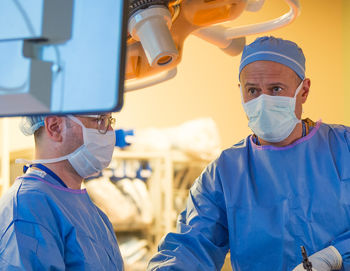- Doctors & Departments
-
Conditions & Advice
- Overview
- Conditions and Symptoms
- Symptom Checker
- Parent Resources
- The Connection Journey
- Calm A Crying Baby
- Sports Articles
- Dosage Tables
- Baby Guide
-
Your Visit
- Overview
- Prepare for Your Visit
- Your Overnight Stay
- Send a Cheer Card
- Family and Patient Resources
- Patient Cost Estimate
- Insurance and Financial Resources
- Online Bill Pay
- Medical Records
- Policies and Procedures
- We Ask Because We Care
Click to find the locations nearest youFind locations by region
See all locations -
Community
- Overview
- Addressing the Youth Mental Health Crisis
- Calendar of Events
- Child Health Advocacy
- Community Health
- Community Partners
- Corporate Relations
- Global Health
- Patient Advocacy
- Patient Stories
- Pediatric Affiliations
- Support Children’s Colorado
- Specialty Outreach Clinics
Your Support Matters
Upcoming Events
Mental Health Town Hall
Tuesday, April 23, 2024Join Children’s Hospital Colorado pediatric experts for a virtual...
-
Research & Innovation
- Overview
- Pediatric Clinical Trials
- Q: Pediatric Health Advances
- Discoveries and Milestones
- Training and Internships
- Academic Affiliation
- Investigator Resources
- Funding Opportunities
- Center For Innovation
- Support Our Research
- Research Areas

It starts with a Q:
For the latest cutting-edge research, innovative collaborations and remarkable discoveries in child health, read stories from across all our areas of study in Q: Advances and Answers in Pediatric Health.


Life After Bariatric Surgery
The continuing weight loss journey after surgery
Bariatric surgery is just the first step in a lifelong journey of making healthy choices. We are committed to providing the ongoing support that teens need after bariatric surgery. This may include anything from continuing to meet with a dietitian regularly to seeing a psychologist who can help them cope with the physical and emotional changes that happen after surgery.
Our families discuss life after bariatric surgery
Mona shares the challenges of changing ingrained habits and the positive results she's experienced from the steps she's taken so far.
Realistic expectations after bariatric surgery
Most teens can expect to lose about 28% of their body weight after surgery over time if they commit to the recommended lifestyle changes. These changes include a diet transition program that focuses on protein, learning to eat less at each meal, making healthier choices at each meal, taking vitamins for life and finding ways to stay physically active. These changes help to promote continued weight loss after surgery.
| Diet stage | Time after surgery | Calorie limit | Protein goal | Meal volume | Fluid goal |
|---|---|---|---|---|---|
| #1: Sugar-free clear liquids | Days 1 and 2 | Less than 300 | N/A | 1 oz every 15 min | At least 64 oz daily |
| #2: Full, high protein liquids | Day 3 – 16 (two weeks from discharge) |
300 – 500 | 60 – 90 grams | 2 oz every 15 minutes | 64 – 80 oz daily |
| #3: Soft protein foods | Weeks 2 and 3 | About 500 | 60 – 90 grams | ¼ to ½ cup per meal | 64 – 80 oz daily |
| #4: High protein foods, vegetables and fruits | Weeks 4 – 12 | 500 – 750 | 60 – 90 grams | ½ to 1 cup per meal | 64 – 80 oz daily |
| #5: High protein foods, vegetables, fruits and whole grains | Lifelong after week 12 | About 1,000 | 60 – 90 grams or more | About 1 cup per meal | At least 80 oz daily |
How to see lifelong success
-
Commit to lifelong lifestyle changes.
Ultimately, your teen is solely responsible for making behavior changes that will allow them to be successful at losing weight.
-
Take vitamins and mineral supplements every single day.
-
Keep a food journal.
Eat three to six small meals each day, focusing on protein first. Documenting this will help your teen determine where they may need more support.
-
Carry a water bottle everywhere.
Drink plenty of water and sugar-free beverages to stay healthy and hydrated – at least 64 ounces (8 cups) daily.
-
Plan meals and snacks ahead of time.
Meal prep helps to stay on track with healthy foods.
-
Avoid eating in front of the television or any screen.
-
Exercise for at least 60 minutes each day.
Choose activities your teen loves to do so it doesn't feel like "work."
-
Identify support people to help keep on track.
-
Find healthy ways to reward your teen for a job well done.
-
Make sure to come to all postoperative visits.
Our bariatric surgery team will continue to monitor your teen's health and progress.
Support after bariatric surgery
Having people to support teens on their weight loss journey after bariatric surgery is vital. This is why our multidisciplinary team is there to support teens as they go through the physical and emotional changes that commonly occur after bariatric surgery.

"I know if I didn't have the surgery, I wouldn't be able to do half the things that I'm doing now."Mona, at the top of the Manitou Incline
Additional bariatric surgery resources

Read more information about our bariatric surgery program and the types of surgeries we offer.

Learn more about how bariatric surgery works, its benefits and the criteria a teen needs to meet to have surgery.

Determine your teen's BMI using the CDC's tool, and entering in their weight and height.

Partnership with the University of Colorado School of Medicine
Children's Hospital Colorado partners with the University of Colorado School of Medicine, where many of our physicians and care providers serve as faculty.



 720-777-0123
720-777-0123




